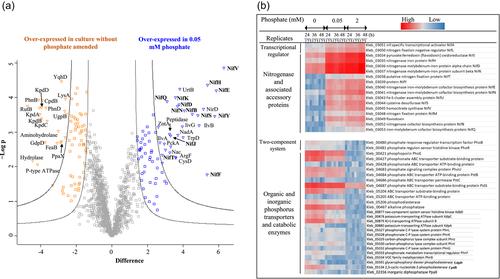Biochemical mechanism of phosphorus limitation impairing nitrogen fixation in diazotrophic bacterium Klebsiella variicola W12
Abstract
Introduction
Biological nitrogen (N) fixation (BNF) plays a key role in nitrogen supply in agricultural and natural ecosystems. Harnessing BNF can substantially reduce dependence on chemical fertilizer in agroecosystems and hence can contribute to sustainable agriculture. However, a number of field studies have demonstrated that BNF can be largely suppressed in phosphorus (P)-deficient environments, while the underlying mechanism is not well understood.
Materials & Methods
In this study, comparative proteomics and lipidomics analyses were conducted on a diazotrophic bacterium Klebsiella variicola W12 under P-deficient and P-replete conditions to gain insight into how P availability affects N fixation.
Results
Under P deficiency, N fixation activity of K. variicola W12 was severely repressed. In response to P limitation, the bacterium synthesized P-free ornithine lipids to replace glycerophospholipids in its membrane to reduce cellular demand for P. Comparative proteomics showed that P limitation resulted in upregulation of the PhoBR two-component system, a range of organic and inorganic P uptake and transport systems, while nitrogenase and N-fixation-related transcriptional regulators NifL and NifA were downregulated.
Conclusion
These results revealed lipid renovation as an adaptation strategy for N2-fixing microbes to survive under P stress and provided biochemical evidence on how P availability regulates BNF. A conceptual model of N–P coupling at the microbial metabolism level is therefore proposed. Our study provides a simple yet plausible explanation of how P deficiency suppresses BNF observed in the field and highlights the importance of regulating P availability to maximize the potential of BNF in agroecosystems for agriculture sustainable production.


 求助内容:
求助内容: 应助结果提醒方式:
应助结果提醒方式:


